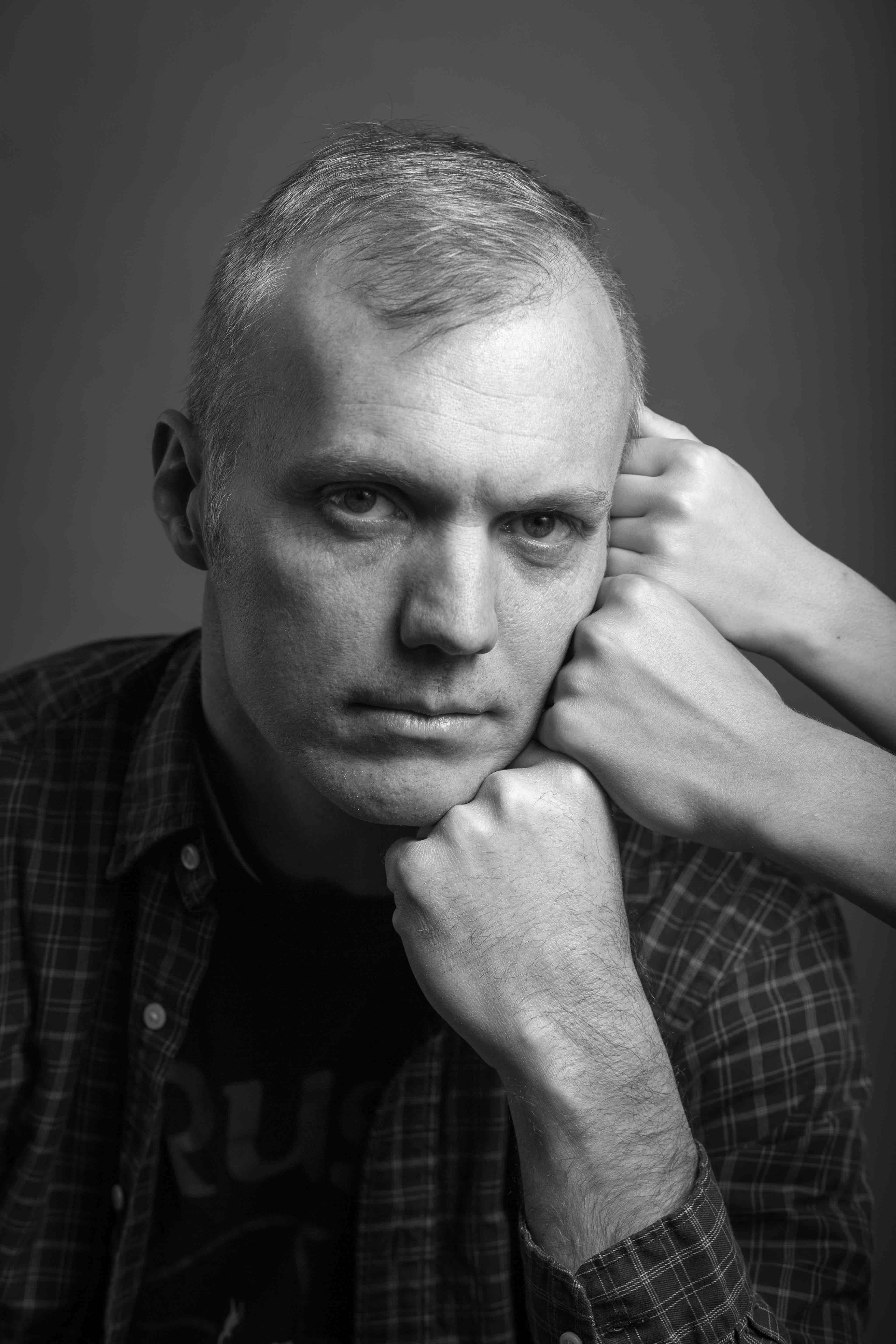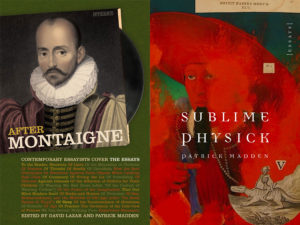My daughter loves this riddle I told her:
You are driving a bus. At the first stop, 7 people get on. At the next stop, 3 more get on. At the third, 2 get off and 5 get on. At the fourth, no one gets on and 2 get off. At the fifth, 7 get off and 1 gets on. At the sixth stop, 2 get on and 2 get off. At the seventh, 10 people get on and 3 get off. What is the bus driver’s name?
 Reading it here, you can easily figure it out, because you can return to the text and reread, but aloud, this gets people (nearly) every time, because once they hear the numbers, they start trying to do arithmetic, thinking you’re going to ask them how many people are left on the bus. I apologize for stating the obvious. The point of the riddle is misdirection, a subversion of expectations that’s satisfying in its cleverness instead of frustrating. This is just one example of this principle in action. One might easily point to most Hollywood movies, for instance, with their twists and turns to keep viewers guessing. I know this, and you know this, but I hope it’s worth revisiting briefly here, as I retread some of my own path to realizing it (making it real), and applying it to essay writing, specifically.
Reading it here, you can easily figure it out, because you can return to the text and reread, but aloud, this gets people (nearly) every time, because once they hear the numbers, they start trying to do arithmetic, thinking you’re going to ask them how many people are left on the bus. I apologize for stating the obvious. The point of the riddle is misdirection, a subversion of expectations that’s satisfying in its cleverness instead of frustrating. This is just one example of this principle in action. One might easily point to most Hollywood movies, for instance, with their twists and turns to keep viewers guessing. I know this, and you know this, but I hope it’s worth revisiting briefly here, as I retread some of my own path to realizing it (making it real), and applying it to essay writing, specifically.
Over the years, as I read and wrote and taught and critiqued thousands of essays, I formulated an observation into a theory. For context, you should know that, including graduate school, I’ve been at this essay thing semi-professionally for twenty years. Through reading and writing countless good and bad examples, I came to feel that the best essay endings worked their way backwards through the text to shift a reader’s understanding of the whole, to reconfigure interpretation from a new insight. Thus, the endings were a surprise that made sense; they granted an insight beyond what I would have come to on my own, but not beyond what was reasonable. I became fond of saying that this represented a surprising inevitability (or inevitable surprise).
While I never thought myself original for noticing this (and creating a handily chiastic catchphrase to describe it), it took me quite a while to discover that Aristotle had theorized essentially the same thing in the Poetics:
Such an effect [Tragedy inspiring fear or pity] is best produced when the events come on us by surprise; and the effect is heightened when, at the same time, they follow as cause and effect. The tragic wonder will then be greater than if they happened of themselves or by accident; for even coincidences are most striking when they have an air of design. …
A Complex action is one in which the change is accompanied by such Reversal, or by Recognition, or by both. These last should arise from the internal structure of the plot, so that what follows should be the necessary or probable result of the preceding action. It makes all the difference whether any given event is a case of propter hoc or post hoc.
That is, “because of this” versus simply “after this.” We want causation, not simply correlation. “The king died and then the queen died” is not a proper story. No, wait. It is a story, according to Forster, but it’s not a plot. A plot requires not only “a narrative of events arranged in their time-sequence,” but a sense of causality (“then the queen died of grief”). For context, you should know that Aristotle’s source texts were epic poems and plays, and Forster’s focus was the novel, primarily. And here we are talking of essays, mostly, though the principles, as I have said, apply broadly.
Expectations affect not only endings, influence not only twists of plot and action. When we read, we bring myriad expectations to the text, from the most basic (that it will be decipherable), through the conventional (that it will exemplify proper grammar), through the contextual (that it will present to us a world we recognize or, sometimes, characters that we “relate to”), to the transcendental (that it will satisfy in us a spiritual yearning we didn’t quite know we had). We read through our expectations at every turn, and every straightaway, too.
No one’s expectations are infallible; no reader is ideal. Yet I am paid to read others’ work and offer my honest critique, asking them questions and suggesting ways to improve. Perhaps the commonest category of misstep I find in draft work has to do with failing to meet or anticipate readers’ expectations, failing to consider the expansiveness of language and the way ambiguities can be detrimental, even antagonistic to readers. I tell my students that I am a lazy, impatient, intentional misreader. I expect them to do the work of considering their words and phrases and rooting out unintentional misreadings. Because I will misread them every chance they give me, I say. We laugh, but they know I’m serious.
I find such problems all the time, but I suppose I ought to include here an example. So I’ve asked permission of one of my students, whose recent essay caused me and her classmates a slight bit of consternated amusement. The essay was titled “Love Bursts,” which pressed play on my mental boom box with a two-song playlist of Def Leppard’s “Love Bites” and Nazareth’s “Love Hurts,” each of which strings together a litany of bad things love does (scars, wounds, marks, bleeds, brings me to my knees, etc.). [I could, too, have remembered the Everly Brothers’ original “Love Hurts,” or covers by Roy Orbison or Cher or… and who can forget the J. Geils Band’s “Love Stinks”? {rip J. Geils, who died a few days ago, and who was raised, I’ve just learned, the next town over from my hometown in New Jersey}]
Anyway. “Love Bursts” seemed obviously a sentence, subject-verb. Bursting was something love did. This determined my reading. And the first section did nothing to revise my expectation, as the author returned to her childhood, to a night she spent with her aunt and cousins in a hotel. Her mother had allowed her to go only on the condition that she not wet the bed. Uh oh. You know what’s going to happen next, don’t you? Our narrative expectations are primed. But they’re also confirmed in their reading of the title. Love bursts… we’ve got a bladder ready to burst in the nighttime, so… It’s obvious.
Only it wasn’t. The section ends in a display of auntly love, with smiles and bubble bath and not a hint of anger or frustration. Only later in the essay, two-thirds of the way through, does the title reconfigure into an adjective-noun phrase. It’s been about bursts of love all along, but I didn’t know it. I felt a bit misled. The author, knowing from the get-go how to apprehend the titular phrase, was surprised at my (and most of the class’s) misreading. It’s important to note that I don’t believe her to be wrong with her title choice; I just want her to think more broadly about potential meanings.
The advice part of this essay will be brief and general (“feeling myself too ill-instructed to instruct others” — Montaigne): Try to be aware of the various readings and meanings readers may come to give your text. Understand language not as denotative but as accumulative and tentative, words in order forming constellations from which meaning emerges. Anticipate your readers’ questions and objections, and avoid problems or address them as you write (perhaps even in direct address; the essay is wonderfully open to such meta-textuality).
If I weren’t already past the respectable word limit for blog posts, I’d talk us through an expert example of managing expectations, but instead, among so many possible models, I will simply exhort you to read Brian Doyle’s “His Last Game,” which was a Best American Essay in 2013. Savor how it both confirms and subverts your expectations throughout. To wrap up, then:
I love this story my mother told us. For context, you should know that for many years she worked as a secretary at a law firm that handled lots of motor vehicle cases.
You need to have uninsured motorist insurance. With the cases I see every day… there’s a lot of people out there driving around without insurance, or without enough insurance. And if one of them hits you… you’ll be on the hook for the damages. For years I kept telling Chris Leone, “Chris, you need to get uninsured motorist insurance,” and she wouldn’t listen. “Liz,” she’d say. “You worry too much.” But I kept telling her, for years, and finally she got uninsured motorist insurance.
You know what’s going to happen next, don’t you? And while you’re sad for Chris, at least you’re glad that she got uninsured motorist insurance just in time.
Except… in time for what? Nothing happened. Nobody hit Chris. Chris didn’t hit anybody. “Mom!” we laughed. “This is the part where an uninsured motorist hits Chris’s car, and…”
“No,” said Mom. “That’s it. She got the insurance. Now she’s covered.”
For context, you should know that almost exactly a year ago, my mother died of cancer. Because she had smoked almost her entire adult life, we long knew that the day would come, yet I echo what many have said: you’re never really prepared. Despite the disarming pain that still catches me unawares and plunges me into a deep melancholy, I am grateful that her whole family, her husband and all of her children and our spouses and her grandchildren, and many of her friends, gathered from near and very far to spend her last days with her, when she was still awake and aware and laughing and praying and telling us all how much she loved us. When she was gone, or nearly gone, I don’t quite remember, we told this story to each other and it was a salve to our wounds.


